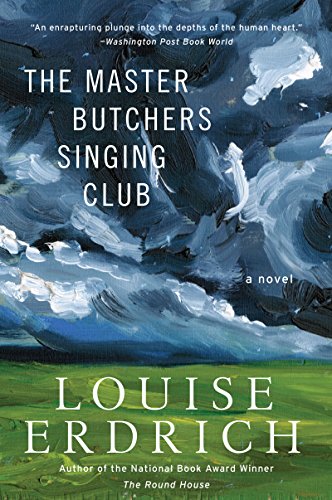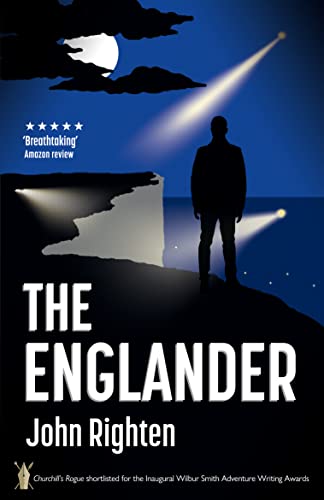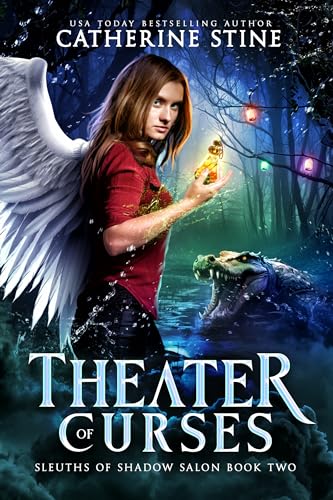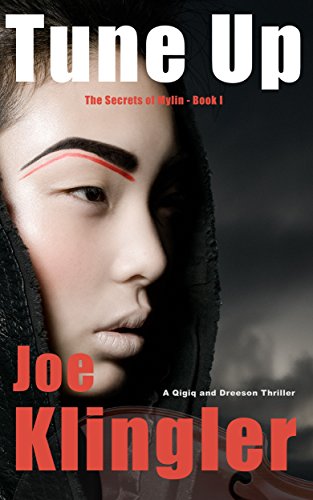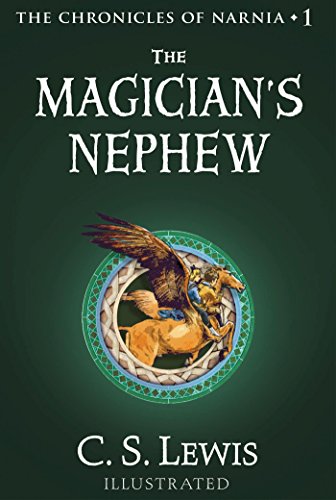From Hemingway to Hiaasen, some of our finest authors have written countless novels set against the beautiful if corruptible backdrop of Florida. But the state is also rich with a history that goes back centuries and cries out for the staggering gifts that historical novelist Paul Clayton brings to the genre…
One of our most popular Free Kindle Nation Shorts ever, back in December, featured a generous excerpt from Paul Clayton’s sweeping historical novel White Seed: The Untold Story of the Lost Colony of Roanoke.
In the dedication that appeared at the beginning of our excerpt, Clayton took a major risk. He dedicated his book to Clavell, Michener, and Follett — three masters of the grand historical novel — and in so doing he invited the kind of comparison from which many authors would shrink. But our readers and a growing number of Amazon reviewers have agreed: Clayton is up to the comparison.
Now Paul is back with a 14,000-word opening excerpt from an even more ambitious work, the Southeast Series trilogy that begins with his novel Calling Crow, priced at just 99 cents for a limited time in the Kindle Store.
Here’s the set-up:
1555. Calling Crow is haunted by his recurring dream of the Destroyer who will one day lay waste to his village. Then Spanish colonial slavers from the island of Hispaniola arrive on the shores of the Southeast, lands that have been home to the Muskogee people for generations. Calling Crow and another brave are taken and bound into slavery.
Life in the gold pits and slave camps is humiliating and brutal, but Calling Crow refuses to let them break his spirit. Aided by a kindly priest, Calling Crow vows to learn the language and ways of an overwhelmingly powerful enemy in order to eventually save his own people.
But first he must regain his own freedom.
(Book One of the Southeast Series)
by Paul Clayton

List Price: $0.99
UK CUSTOMERS: Click on the title below to download
|
“Furthermore, we command you in the virtue of holy obedience to send to the said firm lands and islands, honest, virtuous, and learned men, such as fear God and are able to instruct the native inhabitants in the Catholic faith and good manners, applying all their possible diligence in this.”
–Alexander Borgia, a Spanish pope indebted to Ferdinand and Isabella for his election, after dividing the earth in half, and granting the undiscovered lands in the western half to the Spanish, the eastern to the Portuguese.
1555, Along what would someday be called the South Carolina coast– Chapter 1
Theblue sky stretched over and away from the green bean field, seemingly to the ends of the earth. It was a medicine sky, and as Calling Crow worked with two other men, he knew something bad was coming. A small fire crackled around the already-narrowed base of the tree they were felling as they chopped away the brittle, blackened wood with their stone axes. Calling Crow was the tallest of the three, muscled and slender. He paused in his chopping and glanced back at the sky.
The tree was still as big around as a fat old man, and he knew this job would take them most of the day. Sweating, he removed the short mantle of woven bark which covered the upper part of his body. Now, like the other two braves, he wore only a breechclout of deerskin held in place by a leather girdle. His pleasing, oval face was copper colored like a leaf in autumn, and was set off by a full, proud nose. He picked up the axe and chopped powerfully at the tree. The larger of the other two braves, Sun Watcher, knelt and used his axe to heap glowing embers up against the trunk. Birdfoot, a small thin brave, swung at the tree tiredly, breaking off a piece with a clinking sound. His intense face was blackened here and there with soot.
Calling Crow noticed something moving in the distance and put down his axe. With brown eyes the color of a pool of cedar water, he stared at the distant tree line. A solitary figure was approaching, running very fast.
The other two young men turned to Calling Crow as the runner momentarily disappeared behind a sand dune.
“What is it?” asked Sun Watcher.
“A runner is coming,” said Calling Crow. A moment later the figure crested the dune moving so fast they all immediately grabbed their clubs, looking to see if he was being chased. He was not, being instead ina great state of excitement. He tried to shout and lost his footing, tumbling and throwing up a spray of sand. He rolled quickly to his feet as the others ran up to him. It was Calling Crow’s cousin, Runs Like Deer. He coughed as he fought for breath. Calling Crow clapped him on the back. “Cousin, what is it?”
“Hurry,” said Runs Like Deer between gasps, “it is the men from the heavens, come down in their cloudboats!” He turned and staggered back up the dune. Calling Crow, Sun Watcher, and Birdfoot looked at each other for a moment and then hurried back to the tree to get their bows. They followed Runs Like Deer up the dune.
Only a handful of villagers had ever seen the men from the heavens in their beautiful cloudboats. It was said that they roamed the big water in search of newly dead souls to take to the land of the dead.
Calling Crow, Sun Watcher, and Birdfoot gasped for breath as they reached the top of the dune. They found a swarm of little boys looking out to sea. Their shouting pierced the air like gull cries as they jumped and pointed. A somber-faced old man and woman knelt facing the sea as they prayed.
Calling Crow climbed to a higher vantage point and looked out over the water. He could not believe what he saw. Out on the sea at a great distance, two white clouds had detached themselves from the heavens and now sat on the waters. As the warm rays of the sun burned into his face, a chill went through him. There was no doubt that this was a sign, but what did it mean? Calling Crow watched a boy put an arrow to his bow. His arm muscles bulged as he pulled the feathered shaft back to his cheek. Calling Crow frowned at the other boys watching expectantly. They should know by now that even if an arrow could reach the distant cloudboats, it would only pass harmlessly through them, for they were from the spirit world.
The boy released his arrow, and it arced out a good distance before it fell into the sea beyond the rocks. Undaunted, he lay on his back, and using his legs to hold his bow, launched another arrow. It too fell woefully short. Disappointed, the crowd of boys again fixed their attention on the distant cloudboats. A mild seaward breeze started up behind them as Runs Like Deer came over to stand beside Calling Crow. Together they watched the two white shapes in silence.
“I think they’re moving,” said Runs Like Deer.
Calling Crow strained his eyes to watch as the cloudboats closed the distance to the dark point of land that jutted out on the periphery of his vision. What did these omens bode for his people? A huge cloud passed overhead and the sea turned the wintry color of dead leaves. The smell of smoke reached Calling Crow’s nostrils. He turned to see two boys on their haunches, blowing a handful of smoking kindling into flame to call the people from heaven. Calling Crow ran over. “No,” he said angrily as he kicked the flames out. “We must not call them until the Council of Old Men has been consulted.”
The boys glowered at Calling Crow as he waved them away. “Go!”
They walked off and Calling Crow turned and looked back out to sea. The cloudboats had disappeared, but he could not take his eyes off the sea. What were those things? The sight of them caused a great fear and sadness in his heart. He said nothing to the others and after a while they wandered off. He sat in the sand and stared out at the waters. Despite the warmth of the day, he shivered. The sea often had that effect on him, ever since it had taken his father.
Back when he was a boy, Calling Crow’s father had gone out fishing with some other men when a storm suddenly came up. He remembered running to the beach, crying as the wind lashed his face, and lightning lit the angry sky. The next morning the empty canoe had washed up on the beach. His father and the other man had never been found.
Chapter 2
Under a dizzying array of stars, two caravels, the Guadalupe and the Speeding Hound, moved slightly against their anchors in the black swells, like two great seabirds. The ships were from Spain’s island colony of Hispaniola, down in the Caribbean Sea, and were on a, so-far unsuccessful slaving expedition. Carrying sixty-five men, the ships contained two armories filled with dozens of deadly accurate crossbows and, more importantly, thunderous black-smoke and -fire-belching harquebuses. The harquebuses were woefully inaccurate, but were known to terrify the natives into mute paralysis. In addition, each ship carried a small boat lashed down on the upper deck. The bigger of the two ships, the Guadalupe, also carried two horses, and towed a lateen-rigged long boat for landing them.
The commander of the expedition, Francisco Mateo, a criollo landowner and merchant, sat in his cabin in the rear of the Guadalupe, talking with his friend, an older colonist named Diego Vega. Diego, a sad faced man in his mid-fifties, had been a friend of Mateo’s father, having come over on the Galician’s second voyage with him. Now that Mateo’s own father had died, he treasured the old man’s company, as he was the only living link to his family’s past.
Senor Mateo’s tea-brown eyes stared pensively at nothing as he ran his hand through his red hair. He did not like what he had been hearing Diego and other criollos. Before he’d left Santo Domingo, he had hired a contingent of soldiers newly arrived from Spain to help him catch slaves. Now, under the guidance of their two officers, they were complaining and causing trouble, wanting him to turn around and go back to Santo Domingo. Even his crew, loyal criollo and mestizo farmers and ranchers, were beginning to tire of the search.
“You know,” Diego said tiredly, “the cook was lying about being out of ship’s biscuits.”
Senor Mateo’s head jerked upright. “What?”
Diego nodded. “I found three barrels of them hidden under some canvas.”
Mateo said nothing for a moment and Diego went on. “You know, Francisco, I think that the reason you have found no Indians is that God looks unkindly on this venture.”
Mateo remained silent. Diego was married to an Arawak Indian woman. These marriages were now common among the criollos on the island, but to the newly arrived Peninsulars, the idea was repulsive. The Peninsulars considered Indian women to only be useful as whores and servants. Finally Mateo sighed tiredly. “Diego, what we are doing is completely within the limits of the law.”
“Man’s law,” said Diego, almost in a whisper. “I should never have agreed to come along on this. It is wrong. I needed the money so badly that I did not– “
Both men heard faint footsteps out on deck. As Mateo listened to them fade away he made a mental note to deal with the cook in the morning. Another thought came to him. Perhaps they were measuring the latitudes wrong and therefore searching for Indians in the wrong area? That would account for their terrible luck on this trip. Perhaps he should take the latitude with the backstaff himself?
A loud, dull thud reverberated through the wood of the cabin. Mateo looked over at Diego. “See what it is.”
Diego quickly got to his feet. As he went toward the door, the strong smell of lamp oil reached Mateo’s nostrils. Diego opened the door and turned to look upward toward high stern of the ship. A glow spread around him and then golden, liquid fire poured down onto his shoulder. He beat his doublet furiously as his face blossomed with fear.
Mateo ran to him, roughly pulling Diego’s hands away. In the light of the fire, Mateo saw burnt flesh on one hand. He quickly glanced up at the stern. Bright flames half as high as a man moved in the slight breeze. The large oil lamp which had hung above had evidently broken loose from its fixture and crashed down, causing the planks of the bulkhead to catch fire. Mateo pushed Diego into his cabin. He pulled the smoldering fabric of Diego’s doublet off of him and dunked it in a bucket of water. “Are you okay?” he shouted at the older man.
Diego nodded, appearing slightly dazed.
“Go tell the others. Quickly! And then find the barber to take care of that hand.”
Diego hurried off, shouting as he went. Mateo ran back to the door of the cabin and shouted, “Fuego! Fuego! Come quickly!”
He ran back into the cabin and returned with a cape. As quickly as he slapped the flames out they reappeared. Like the fires of hell, small flaming rivulets of lamp oil flowed about his feet as the intense heat scorched him. He beat at the flames until his cape caught fire. Throwing it down, he stomped it out and turned to call again for help. He saw the ship’s cooper standing there, staring incredulously at the flames.
Mateo shouted at him angrily, “We will lose this ship, fool, and you will have to swim back to Hispaniola! Get the others and some buckets! Get that pump on the port side working!”
“Si,” yelled the man as dread realization contorted his face. He ran back toward the center of the ship. “Fuego! Help! Fire! Come quickly!”
Chapter 3
Calling Crow had taken his name four years earlier after praying for, and receiving, his first vision. He had fasted alone on the mountain for three days and seen the Great Spirit. He had appeared like someone on the other side of a skin stretched across an entryway, brushing up against it as they passed. Then a large crow had settled in a nearby tree and called to him, and that noble bird had become his spirit guide.
Now he, Sun Watcher, and Birdfoot emerged from the great forest of slash pine and broad-leafed magnolias, elms, and hickories that bordered on the village of Tumaqua. Each man wore his bow over one arm, and each had a quiver of arrows hanging from their back. They had been sent to scout the forests that bordered the Flathead People’s lands and had seen nothing unusual. They were so called because of that tribe’s custom of binding the heads of their infants to boards. Heading back toward the village, the men walked quickly across a field of clover.
Calling Crow turned to Sun Watcher as they walked. Although Calling Crow was a hands breadth taller than Sun Watcher, Sun Watcher was stronger, being very broad and muscled in the chest. “The Flatheads are nowhere in evidence.”
Sun Watcher smiled. “They are probably afraid to come around.” Sun Watcher’s smile turned to a frown. “Tell me, Calling Crow, did you also see this light Birdfoot speaks of’
“Yes,” said Calling Crow.
Sun Watcher looked straight ahead, his face stony in its seriousness. “Tell me, what was it like?”
Calling Crow remembered the mysterious light. He and others had watched it burn against the black sky over the sea last night. He still wasn’t sure what it portended. Perhaps he should speak to Mennewah the Shaman about it. “It burned like a star fallen onto the waters.”
“Aieyee, I told you so,” Birdfoot said as he tried to keep up with the two bigger braves. Birdfoot’s delicate features and large eyes flashed annoyance at Sun Watcher for doubting him. “It is a sign.”
“No, Grandfather,” said Sun Watcher. He turned and smiled. “It is not.”
Birdfoot was actually younger than the other two, but because of his pensive, questioning ways he was teasingly called Grandfather.
Sun Watcher filledhis chest as they walked, bulging out his muscles. He looked crossly at Birdfoot. “You are too serious, Birdfoot. If it really was a sign, Caldo would have already called a meeting with the Council of Old Men.”
“Perhaps.” Birdfoot rubbed a rivulet of sweat from his brow.
The three men fell silent and Calling Crow thought of the dreams he’d been having. In one of them he’d heard his dead father’s voice as he watched the strange cloudboats sail by. He wondered if it was a sign, and if so, what it portended.
Calling Crow and the other two braves reached the dirt path that led to Tumaqua. Worn smooth by the moccasins of over a hundred men and women, it felt good beneath their feet. They could see the village up ahead. Almost on the edge of the sea, it sat between two large dunes. The village was made up of three dozen rectangular dwellings. Their semicircular roofs were made of bent saplings that had been covered with mats of woven cattails and bark. The dwellings were situated haphazardly around a large circular building with a domed roof, called a chokafa. Built on a mound, the chokafa served as the village’s meetinghouse. Next to the chokafa was a large rectangular field called a chunkey yard in which ball games were played against players from neighboring villages. All these structures were enclosed within a defensive palisade of sturdy upright timbers and sharpened stakes pointing outward.
As the three neared the village, they heard the women wailing. It was the cry that indicated that someone had died! They began running. As they entered the palisade, Calling Crow was saddened and moved by the plaintive harmonies of the women. It was like a storm wind moaning late at night. Who had died? he wondered. Perhaps one of his loved ones?
Death was, of course, not an unusual thing, but as the volume of sound swelled with their every step, Calling Crow knew that it must have been someone of great importance. Never had he heard wailing like this. “Do you think it was Mennewah?” Calling Crow shouted to Birdfoot as they ran along.
“Perhaps,” Birdfoot replied worriedly.
Sun Watcher said nothing.
Mennewah the Shaman was the oldest man in the village, and Calling Crow had dreamed of him twice in the past moon.
They rounded one of the bigger huts and saw that the chunkey yard was full of sitting women, their heads bowed as they wailed. It was the custom for the women to mourn a death in this way.
In front of the firewell, a body lay on a raised pallet of willow poles and skins. Before Calling Crow and the other two braves could get close enough to see who it was, the maiden, Tiamai, ran up to them. Her large eyes were glazed with sadness. “It is our beloved Chief,” she said.
Calling Crow felt as if a knife had punctured his heart. The cloudboats had appeared and now the bravest, noblest man in Tumaqua was dead!
“What happened?” he said.
Tiamai’s eyes were moist. “Our Chief and Cries At Night had been stalking a big buck deer all day. When our Chief shot his arrow into him, another arrow also struck the buck. It belonged to Many Skins Man of the Wolf Clan. Both their arrows seemed to strike the buck at the same time. Our Chief suggested that they should share the kill, but Many Skins Man insisted that his arrow had pierced the buck first, and the kill should be all his. They fought and Many Skins Man killed our Chief.” Tiamai deliberately avoided saying Chief Caldo’s name. To speak the name of the dead was taboo.
Sun Watcher looked skyward and howled in rage. Calling Crow looked into Tiamai’s eyes. “How do you know all this?”
“I talked to Cries At Night after they brought our Chief’s body back to Tumaqua.” She held Calling Crow’s eyes for a moment longer before she ran back to the nearest group of women and sat down.
Calling Crow gripped his bow tightly. Perhaps he would soon use it for killing men. It would be the first time for him. If a death was due to a killing, accidental or otherwise, reparation was required from the guilty party. Failure to provide reparation meant war. As long as anyone from the five villages could remember, reparation had always been made and war averted. There was no reason to believe that this time would be any different.
Once reparation had been made, the Council of Old Men voted on whether or not to accept it. Always it had been offered in good faith and always it had been accepted. If it were not, the young braves of the tribe would prepare to exact revenge.
Chapter 4
After eight days of mourning, Many Skins Man still had not shown up to make reparation, and the village of Tumaqua began making preparations for war. The cloudboats now forgotten, the men shaped stones for arrows and lances while the women scraped the fire hardened tips of stakes and buried them in the dirt around the palisade. Old women cooked all day as old men and boys carried water, arrows, and stones up to the top of the palisade. As the people worked, there was an overwhelming quiet, almost as if a summer storm were gathering. No one spoke more than was needed because nothing could be as it had been before. The people could not truly have peace until the reparation was made or war begun. Finally, on the morning of the ninth day, a runner informed the village that Many Skins Man was to come that day.
Calling Crow thought about these things as he sat in the cool interior of his aunt’s hut. Three Pearls brought him a steaming calabash of corn soup. He sipped the hot sweet liquid hurriedly and noisily, not wanting to insult Three Pearls by leaving it unfinished. He could not take his time with it like he normally would have, and ended up gulping the rest of it down before he got to his feet. His mouth burned from drinking it so fast, but that did not matter. He must go out and watch the reparation.
“Nephew,” Three Pearls called to him, “stay and eat more.”
“I am sorry, Aunt,” he said, pausing in the entryway and turning to her with regret. “I must go.” He rushed out of the hut.
Calling Crow quickly made his way to the square next to the chunkey yard. This was the place where the people came to cure hides, grind maize and grains, or just to gossip. It was here that Many Skins Man would stand before them all to make his reparation.
Reparation or war! Which would it be? The Council of Old Men sat in the center of the yard while most of the villagers milled about behind them, talking and waiting. Calling Crow saw that Caldo’s body had been taken away to the beach where it would be raised up on lodge poles to protect it from small animals. Months from now, when the flesh was gone from the bones, certain bones would be given to the Old Men and the braves as talismans.
Calling Crow pushed through the crowd to where Tiamai knelt in the sand, grinding corn. He watched her as she worked. Wearing only a skirt of woven bark, she pounded the blue and yellow kernels of maize into the hollow of a grinding rock with a wooden mortar, the action moving her small breasts. It was understood that the young people of the village would lie with one another, changing partners from time to time as they discovered themselves and their likes and dislikes, but by the time a brave had been on the earth twenty turnings of the seasons, he was expected to have selected one girl for hiswife. Calling Crow had already selected Tiamai. He knew it and so did she. So did any others who happened to see how they looked at each other. Like most girls, Tiamai was an obedient, hard worker for her mother. Although she was but fifteen, Calling Crow was struck with the noble way she carried herself. She was also beautiful. Her long, dark hair fell to her waist and her black eyes shone like the sea at night. It was this combination of nobility and childlike beauty that had made him love her.
He walked over and stood by her side. She looked up at him and smiled sadly, then went back to her grinding.
From the other side of the dunes, the sea called to Calling Crow as it surged and sighed up and down the wide beach. As he listened to its voice he watched Tiamai’s cinnamon-colored face and remembered the last time he lay with her in the forest.
As if hearing his thought, Tiamai paused in her grinding and looked up at him. With the look they shared, he knew that he would soon make their love known to the whole village.
She raised her hand to brush a sweat dampened strand of hair from her face. “Tell me about the cloudboats. I’ve never seen them.”
“I pray you never will. They appeared and our great Chief died. I knew they were not a good sign.” Tiamai lowered her head at the mention of the tragedy. “I wonder what Many Skins Man will bring,” she said.
“I don’t know, but this death will require many fine gifts.” As he looked down at Tiamai he felt his sadness lighten a little. She always worked this magic on him.
“Soon,” said Tiamai, “when the reparation is accepted and the matter of our Chief’s death settled, the Council of Old Men will pick a new Chief from among the top braves. Then life in the village will be as it was. Perhaps they will pick you.” Tiamai smiled and turned away to her work.
Calling Crow said nothing. He knew he was a candidate, along with a dozen or so other braves. However, like everyone else in the village, he thought the Old Men would pick Sun Watcher. He was the bravest and strongest in the village. Whenever they gathered in the chunkey yard to play ball against a neighboring village, they would always win because of Sun Watcher’s strength and skills. As a boy, Calling Crow had challenged him many times in wrestling, footraces, and shooting arrows, but try as he could, not once had he been able to best him.
References to prices on this website refer to prices on the main Amazon.com website for US customers. Prices will vary for readers located outside the US, and prices for US customers may change at any time. Always check the price on Amazon before making a purchase. Contact Us
Menu
Get Great Deals delivered right into your mailbox!Powered by Social Snap
Powered by Social Snap
|

